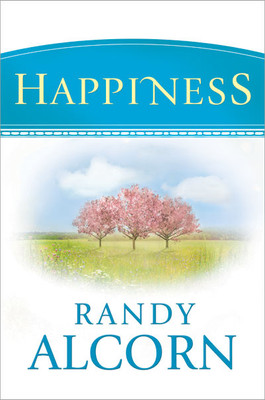If you asked any group of people what they want out of life, chances are that most, if not all, would give some form of the same answer: “To be happy.”
This inborn longing for happiness has been observed for thousands of years by theologians, philosophers, atheists, and agnostics.
Augustine (354–430), perhaps the most influential theologian in church history, wrote 1,600 years ago, “Every man, whatsoever his condition, desires to be happy.”
Nearly 1,300 years after Augustine, the French philosopher and mathematician Blaise Pascal (1623–1662) wrote, “All men seek happiness. This is without exception.”
Since then, countless others have observed the same.
Even Charles Darwin (1809–1882), best known as the father of evolutionary theory, wrote, “All sentient beings have been formed so as to enjoy, as a general rule, happiness.”
Darwin, near the end of his life, also spoke of what he called his “loss of happiness”:
Up to the age of thirty, or beyond it, poetry of many kinds . . . gave me great pleasure, and even as a schoolboy I took intense delight in Shakespeare. . . . Formerly pictures gave me considerable, and music very great delight. But now for many years I cannot endure to read a line of poetry: I have tried lately to read Shakespeare, and found it so intolerably dull that it nauseated me. I have also almost lost my taste for pictures or music. . . . I retain some taste for fine scenery, but it does not cause me the exquisite delight which it formerly did. . . . My mind seems to have become a kind of machine for grinding general laws out of large collections of facts. . . . The loss of these tastes is a loss of happiness, and may possibly be injurious to the intellect, and more probably to the moral character, by enfeebling the emotional part of our nature.
Darwin may not have traced his diminished happiness to his gradual change in worldview, but it’s likely that the naturalistic perspective he embraced gradually undermined his early delight in studying God’s creation, leading to a joyless, machinelike indifference.
Fast forward to today. Evolution still can’t account for the fact that all human beings seek happiness, so some of its proponents simply dismiss it completely. Rafael Euba, Consultant and Senior Lecturer in Old Age Psychiatry at King's College London, writes in his article “Humans Aren’t Designed to Be Happy—So Stop Trying”:
Humans are not designed to be happy, or even content. Instead, we are designed primarily to survive and reproduce, like every other creature in the natural world. A state of contentment is discouraged by nature because it would lower our guard against possible threats to our survival.
The fact that evolution has prioritised the development of a big frontal lobe in our brain (which gives us excellent executive and analytical abilities) over a natural ability to be happy, tells us a lot about nature’s priorities. Different geographical locations and circuits in the brain are each associated with certain neurological and intellectual functions, but happiness, being a mere construct with no neurological basis, cannot be found in the brain tissue.
…The current global happiness industry has some of its roots in Christian morality codes, many of which will tell us that there is a moral reason for any unhappiness we may experience. This, they will often say, is due to our own moral shortcomings, selfishness and materialism. They preach a state of virtuous psychological balance through renunciation, detachment and holding back desire.
In fact, these strategies merely try to find a remedy for our innate inability to enjoy life consistently, so we should take comfort in the knowledge that unhappiness is not really our fault. It is the fault of our natural design. It is in our blueprint [my emphasis added].
…we are not designed to be consistently happy. Instead, we are designed to survive and reproduce.…Postulating that there is no such thing as happiness may appear to be a purely negative message, but the silver lining, the consolation, is the knowledge that dissatisfaction is not a personal failure. If you are unhappy at times, this is not a shortcoming that demands urgent repair, as the happiness gurus would have it. Far from it. This fluctuation is, in fact, what makes you human.
What a depressing and hopeless perspective! But no amount of explaining away the idea of happiness changes the fact that it’s what everyone, in all times and all places, seeks. The question is, “Why?” Why would we even know there’s such a thing as happiness if it can’t be found in our brain tissue?
Consider, for example, laughter. Did this powerful, heart-energizing, body-healing thing called laughter come from random chemicals, protons, and neutrons? Can natural selection and survival of the fittest account for humor, laughter, and happiness?
Or are humor and laughter gifts to us? And if they’re gifts, where could they originate but in God? And if God gives us the gifts of humor and laughter in this fallen world, what does it tell us about God Himself?
That’s why what Scripture has to say about happiness is such good news! In its pages we find that God doesn’t condemn or merely tolerate our desire to be happy; He gave us that longing. Through the Cross, He granted us the grounds and capacity to be happy forever. He encourages us here and now to find happiness and joy in the very place it comes from—Him.
“Taste and see that the Lord is good. How happy is the man who takes refuge in Him!” (Psalm 34:8, CSB).
“May all those who seek you be happy and rejoice in you!” (Psalm 40:16, NET).
“I have told you this to make you as completely happy as I am.” —Jesus (John 15:11, CEV)
Photo by Lisha Riabinina on Unsplash





